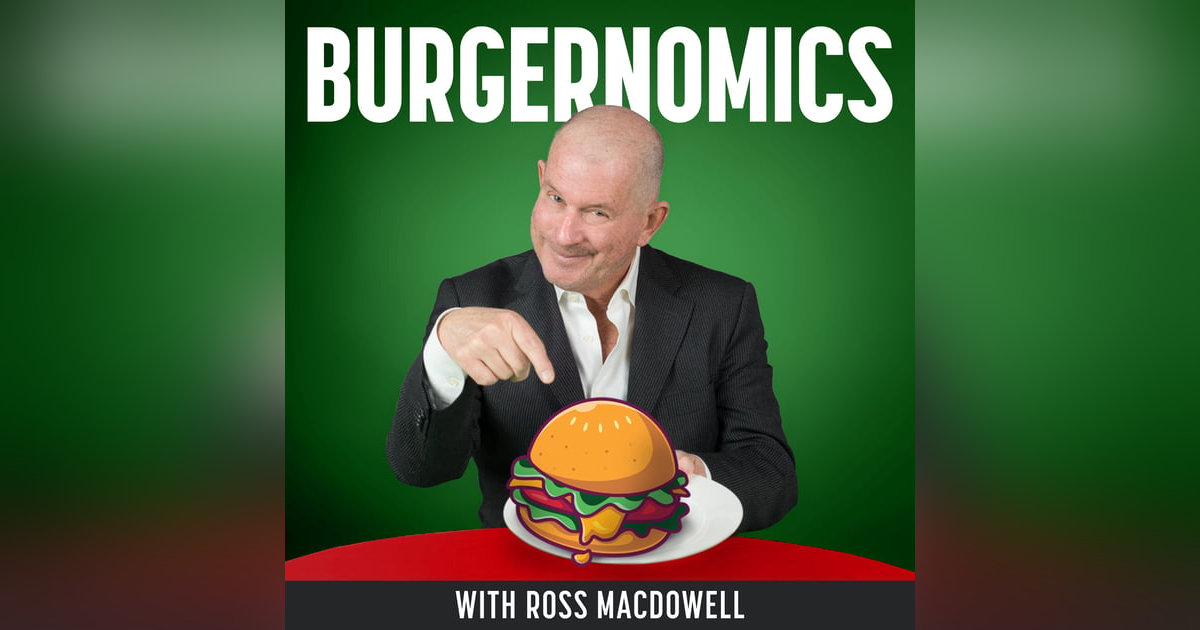53: Good Or Evil Don't Win Wars. Only Economics Wins Wars.

- Welcome to the latest episode of Burgernomics! Today, we delve into the harsh reality that economics, not notions of good or evil, often dictates the outcome of wars.
- Recent developments, including Vladimir Putin allocating a staggering one-third of Russia's economic output to defense, highlight the economic dimension of modern warfare.
- Russia's Economic Commitment:
- Putin directs 33% of Russia's economic output to defense, amounting to $820 billion annually, 15 times more than Australia's projected defense expenditure.
- The move underscores the role of economic decisions in shaping military capabilities and strategies.
- Volunteer Soldiers and Economic Incentives:
- Russian volunteer soldiers enticed by substantial pay, earning four times the average monthly salary, will contribute to the military force.
- Families of soldiers receive significant compensation if killed, creating a unique economic dynamic in the armed forces.
- Labor Shortages and Economic Impact:
- The influx of men into the army leads to severe labor shortages across Russia, affecting not only the military but also the broader economy.
- Even penal colonies are tapped for labor, illustrating the extent of the workforce mobilization.
- Economic Adaptability:
- Russia's ability to redirect civilian production instantly for wartime needs contrasts with the challenge faced by market-based economies like Australia, which require years to shift supply chains to defense production.
- Chinese Naval Power:
- A sobering thought from The Wall Street Journal: One Chinese nuclear submarine and civilian shipyard launch more ships annually than the entire U.S. in the last 30 years, emphasizing the global economic and military landscape.
- Economic decisions play a pivotal role in determining military success.
- Thank you for tuning in to Burgernomics! If you enjoyed this episode, don't forget to subscribe, leave a review, and stay tuned for more intriguing conversations.
Forget Good & Evil. Economics Wins Wars In 110 Seconds
The stark reality is, economic decisions, wins wars….its not about good or evil, like in the movies.
Vladimir Putin has just directed a staggering one third of Russia’s economic output to be spent on defence.
That’s $A820 bn every year, 15 times Australia’s projected $52bn defence expenditure.
US & European donations of weapons to Ukraine, won’t match Russia’s massively increasing armament output.
Firing those weapons will be Russian volunteer soldiers, enticed by earning four times the average monthly salary,
And if they’re killed after five months, their families receive millions of roubles.
The huge influx of men into the army will create severe labor shortages throughout Russia’s economy, including the defense sector.
Currently Russia's largest tank factory has been forced to recruit labour from penal colonies.
While Russia’s dictatorship can instantly direct civilian production to meet war needs, comparatively, Australia’s, market based economy would take years to change civilian supply chains to defence production to prepare for war.
So military success is not about good versus evil, its about a countries preparedness to switch their economic capacity to armament production.
I’ll leave you with one sobering thought.
The Wall Street Journal reports one Chinese nuclear submarine & civilian shipyard, currently launches more ships, every year, than all the ships launched in the US in the last 30 years.
In the latest Burgernomics episode, Ukraines Battlefield Economics I talk with leading global expert Retired Major General Mick Ryan about Ukraines military tactics when you have less than your Russian enemy…. especially the importance of artillery.






